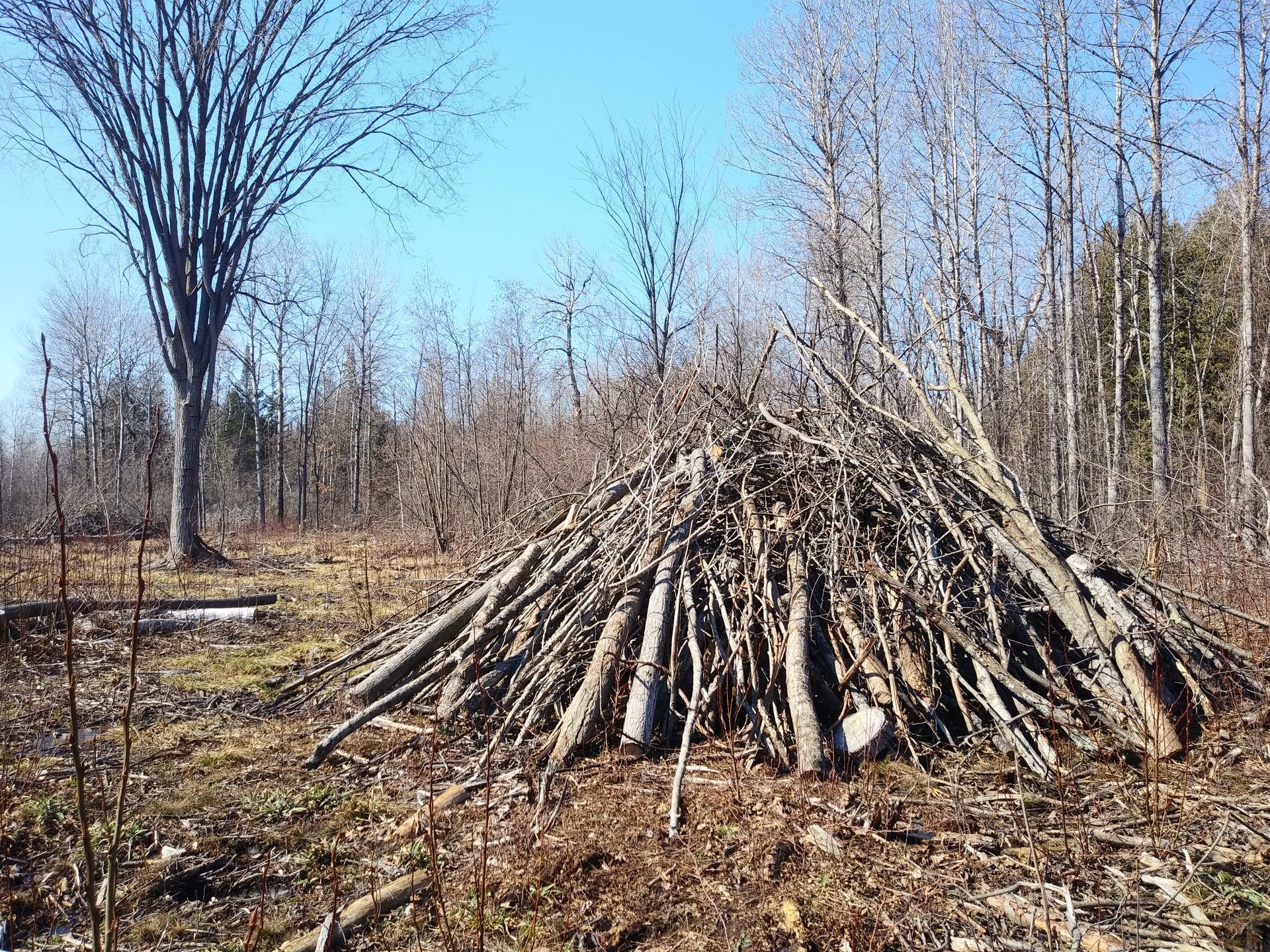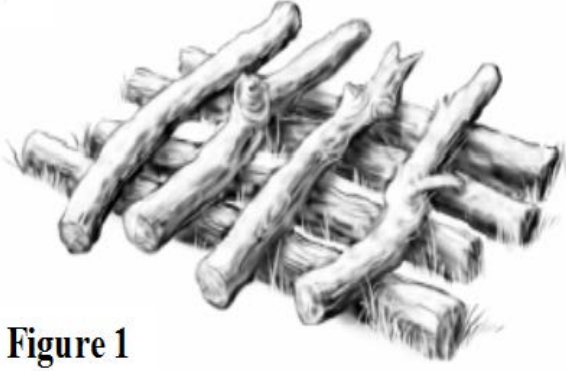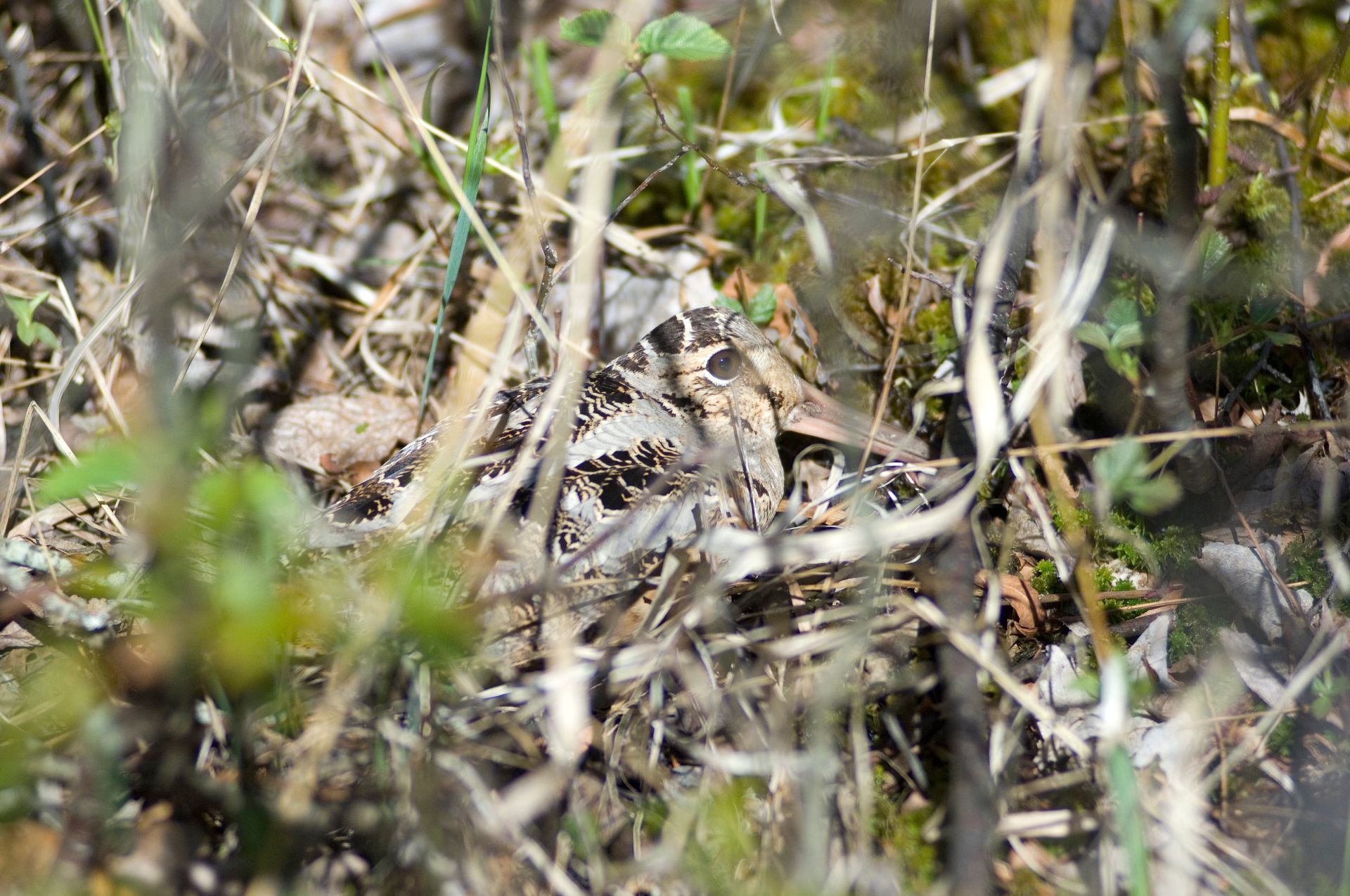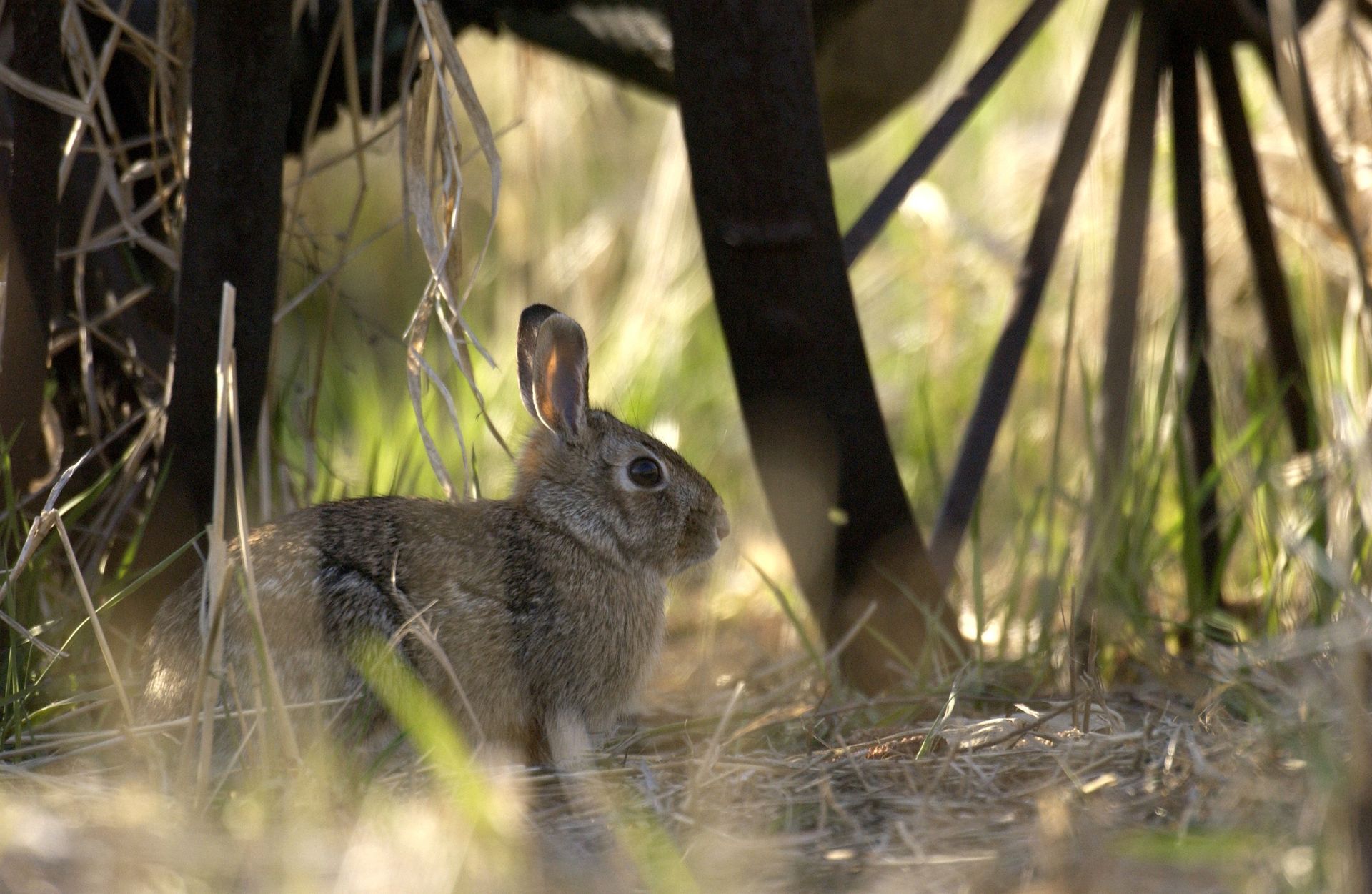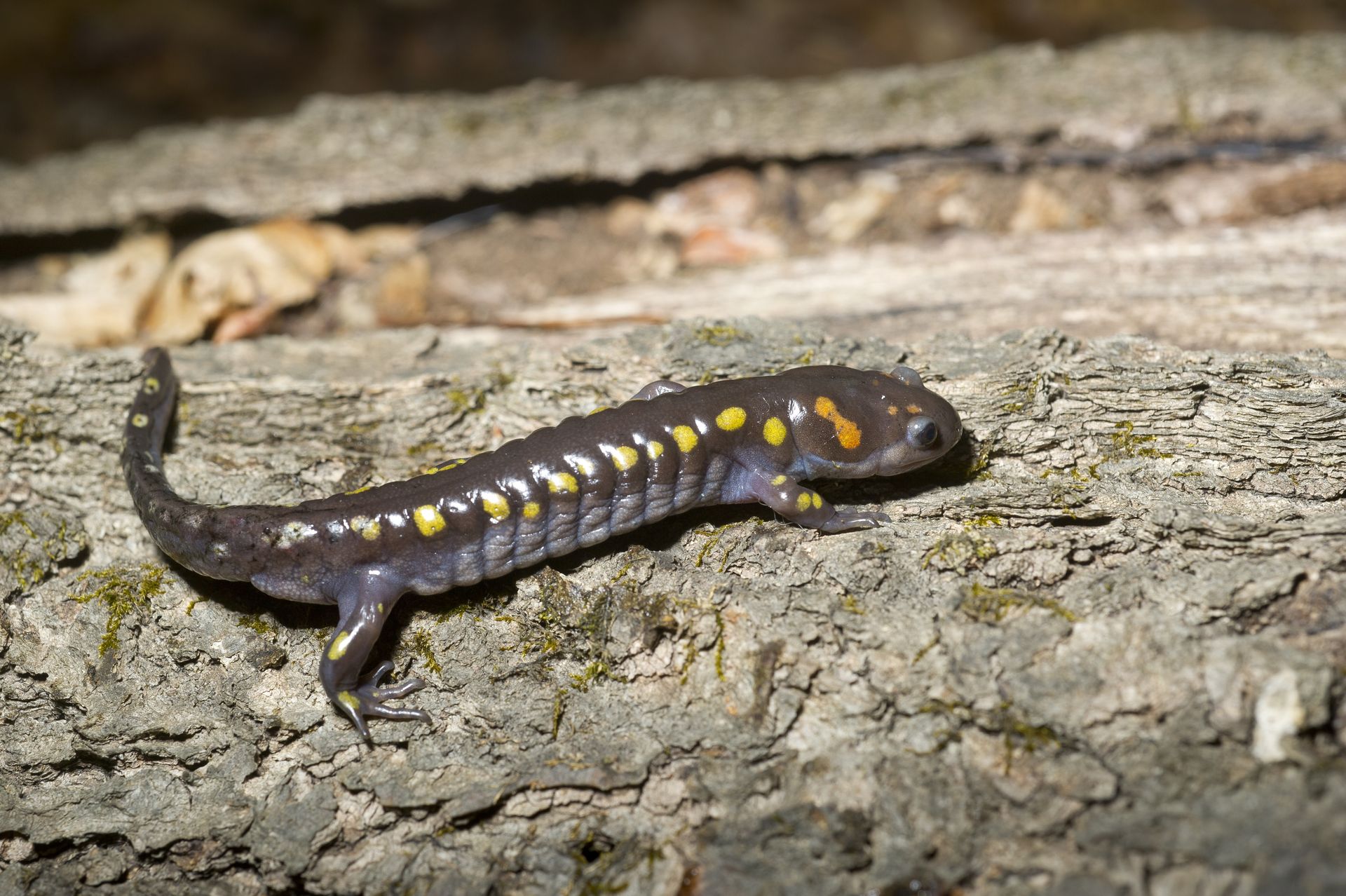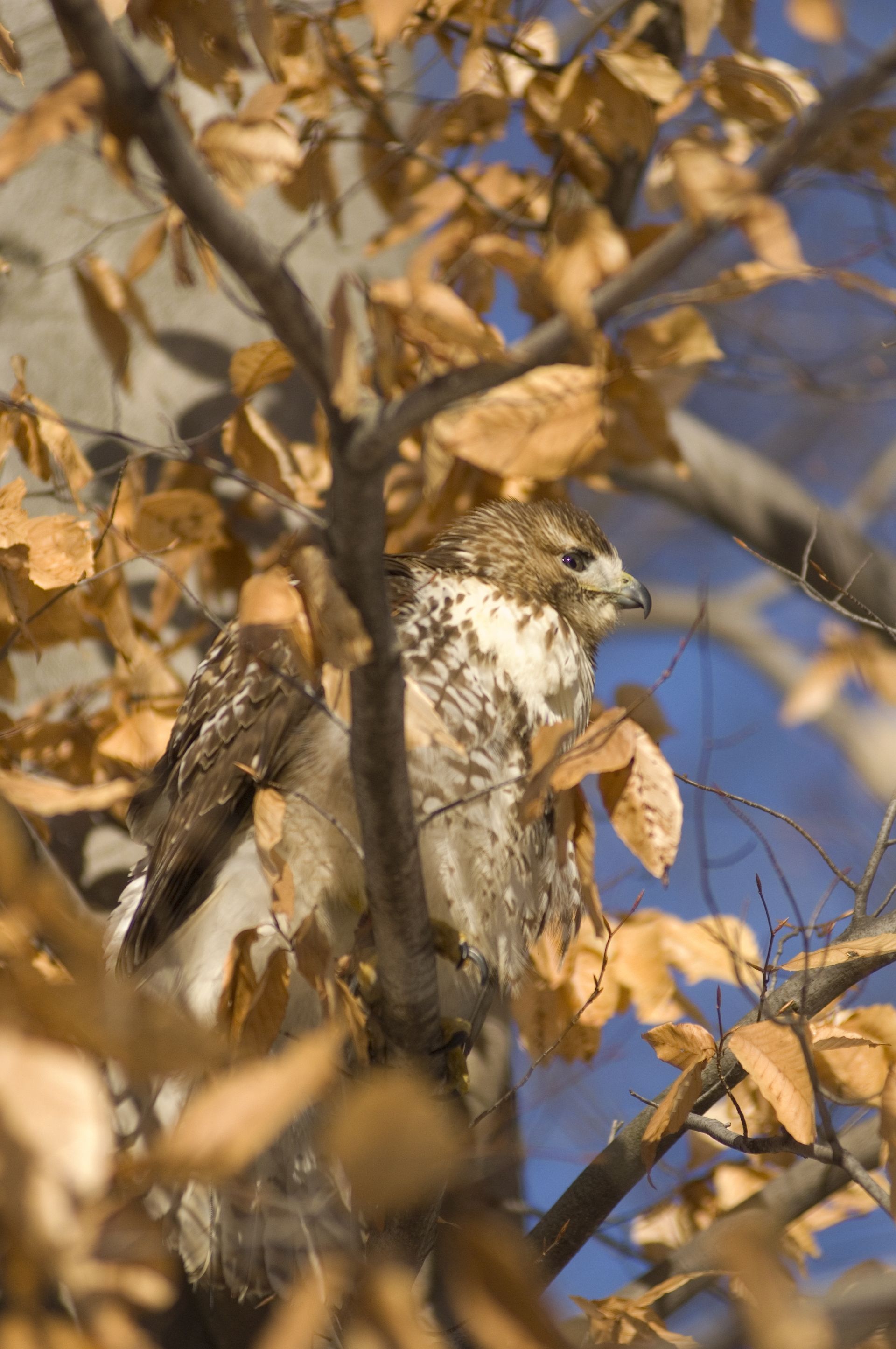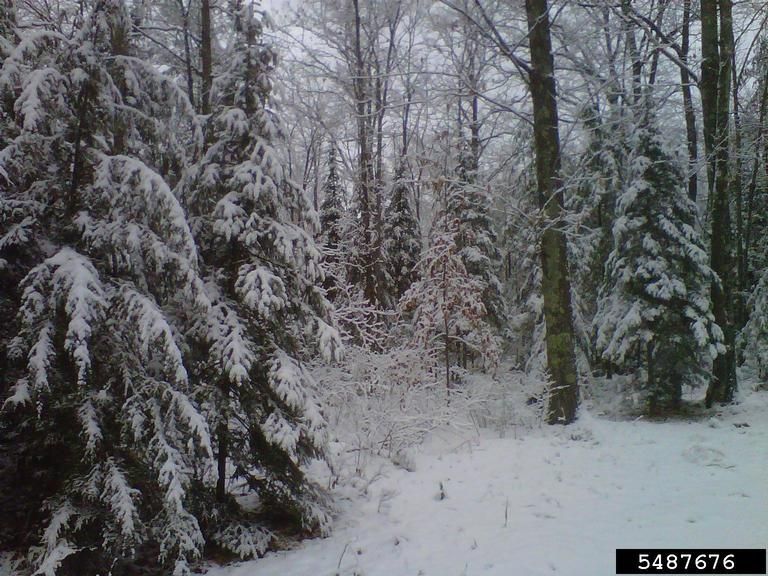OTG Volunteers Needed: Brush Pile Building in Kalkaska County
Once again, MUCC’s On the Ground program is partnering with Land Ethic LLC for another volunteer event! This event will take place in the Traverse City Forest Management Unit in Kalkaska County. Volunteers are needed on Saturday, April 5, 2025, from 9 AM – 2 PM. This project will involve building brush piles and enhancing edge habitat for wildlife. For more details and to register, click HERE.
About the Project
This project will be a continuation of previous efforts within the Traverse City Forest Management Unit. Volunteers will meet at the two-track opening on Riverview Rd. SE, west of Sunset Trail Rd and east of Birch Run Rd (44.60516, -85.03512). We will be moving large logs and branches, so closed-toed boots, long pants, and a long-sleeved shirt is recommended. This event will take place rain or shine except in the case of severe weather so please dress accordingly. Volunteers should plan to be outside for a minimum of three hours. Any necessary equipment, including work gloves, will also be provided. All registered volunteers will receive lunch and a free appreciation gift for their efforts. Snacks and water will be available throughout the day.
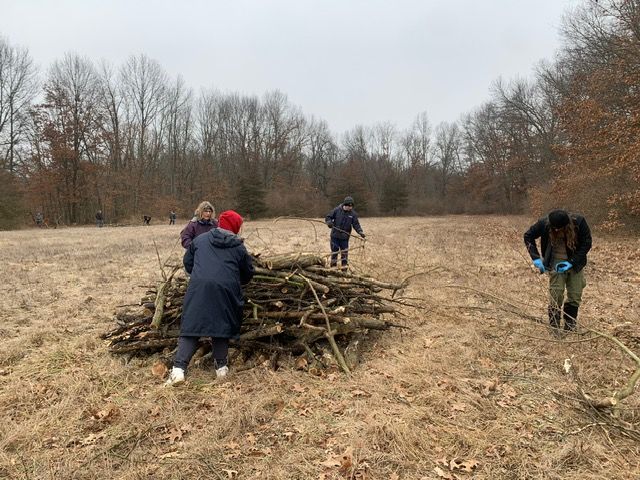
What is a Brush Pile?
According to the USDA Natural Resource Conservation Service (NRCS), a “brush pile” is a mound of woody vegetation constructed to provide cover and numerous other benefits for wildlife. Brush piles can be constructed using many different materials and processes.
When building a brush pile, using the largest materials available to construct the foundation will ensure that it remains strong and secure. Wood logs at least six inches in diameter and 10-15 feet long are recommended. One common approach to building a brush pile is laying these logs “log-cabin style” across the ground, then piling smaller branches on top. Ideally, the foundation should be covered with 2-4 feet of brush consisting of branches, small limbs, or saplings. Larger brush piles will be used by more species of wildlife compared to smaller ones (USDA Natural Resource Conservation Service – Minnesota).
In terms of placement, brush piles should be placed near food sources to attract more wildlife. Good locations include forest edges, woodland openings and trails, field edges and corners, cover thickets, and streamside management zones. Avoid placing brush piles close to houses, buildings, or lawns to help eliminate problems with nuisance wildlife. Additionally, placing brush piles in drainage bottoms and low spots where standing water or flooding could reduce their usefulness for upland species (Kentucky Department of Fish and Wildlife, USDA NRCS – Minnesota).
Why are Brush Piles Important?
Brush piles are a fairly quick and easy way to provide important habit for many species of wildlife. Rabbits, woodcocks, and other small game can take shelter under a brush pile during severe weather or to avoid predators. Other species that take advantage of the excellent shelter provided by brush piles include chipmunks, squirrels, voles, mice, salamanders, and snakes. Birds will oftentimes nest along logs or branches within the brush pile as well. Over time, the decaying wood will decompose and provide nutrients for the soil while also attracting insects for birds and small mammals to feed on. Predators like weasels, foxes, and birds of prey will also use brush piles as hunting grounds (U.S. Fish and Wildlife Service).
Wildlife that Use Brush Piles
Learn More
Want to volunteer your time to build brush piles for wildlife? Visit mucc.org/on-the-ground for more information and a list of upcoming projects. The On the Ground program works to conserve and enhance Michigan’s natural resources by hosting volunteer projects with the goal of improving wildlife habitat. Common habitat projects include brush pile building, invasive species removal, river cleanups, tree plantings, and more. All ages are welcome to attend, so bring a friend or two if you’d like! Families are welcome as well. Registered volunteers receive lunch and a free appreciation gift for their efforts.

